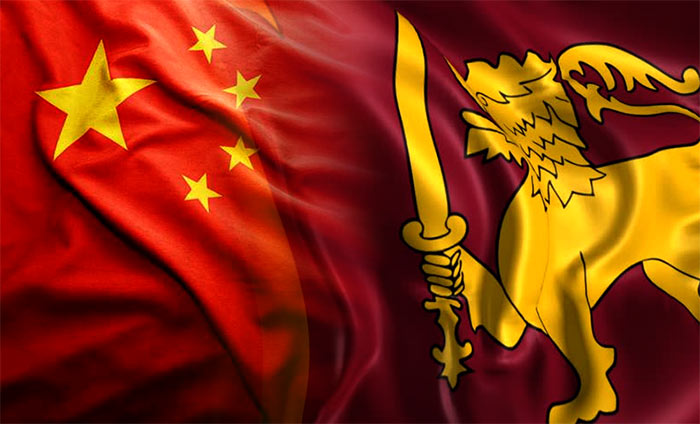Chinese company contradicts stories on harmful bacteria in its organic fertilizer

In response to controversy surrounding organic fertilizer samples imported from China, the Chinese embassy in Colombo said both the Chinese company and the Sri Lankan authorities should cooperate on the principles of respecting science and facts and the spirit of contract with the view to resolving this issue promptly, and address differences through dialogue in good faith for the mutual benefits of the China-Sri Lanka cooperation.
The Embassy said in a statement that it contacted the product supplier, Qingdao Seawin Biotech Group Co., Ltd. to examine the issue, and found out that these reports and statements, which had already harmed the reputation of the company in question, directly contradict the facts.
The Embassy would like to clarify as follows:
1. Qingdao Seawin Biotech Group Co.,Ltd.(here after referred to as Seawin),is a high-tech enterprise focusing in the production of new-type seaweed organic fertilizer, found in 2000 with are gistered capital of 132 million RMB (approximately 4.1billion LKR).It’sproducts,which have passed the EUECOCERT Organic Certification, OMRI Certification,REACH Certification,and Australian Organic Input Certification etc.,have been exported to more than 50 countries and regions in the world,including Europe and the United States. It also set up oversea branch companies in the U.S. and Australia.
2. Seawin was selected by the Ministry of Agriculture of Sri Lanka through open tender to supply the urgently needed organic fertilizer.
3. Thecompany has undertaken obligations strictly in accordance with the signed contract.In their production process,the organic fertilizer must be sterilized at 600 °C, thus all harmful microorganisms are killed by the high temperature, which is in line with the standards required in the bidding documents,the contract,the letters of credit as well as the widely accepted international standards for organic fertilizers.
4. In the process of enforcing the contract,however,the Sri Lanka National Plant Quarantine Services(NPQS) claimed that the sample received contained harmful bacteria including Erwinia,after only THREE(3)days of test and analysis,which lead to the above-mentioned news reports.
It is noted that, according to the International Plant Protection Convention, it will take at least SIX (6) days to detect Erwinia. The hasty conclusion made by NPQS islack of scientific basis. As such,the decision made by the authorities to reject Seawin’s organic fertilizer based on the NPQS report is not only questionable but also causing great financial loss to the company.
5. Therefore,theEmbassy hopes that the related parties in SriLankan side and the Chinese company could coordinate on the principles of respecting science and facts and the spirit of contract with the view to resolving this issue promptly, and address differences through dialogue in good faith for the mutual benefits of the China-Sri Lanka cooperation.
(Courtesy: Daily Mirror)

Latest Headlines in Sri Lanka
- Anuradhapura Hospital Director removed following doctor’s assault March 14, 2025
- Popular rapper Shan Putha arrested with firearm March 14, 2025
- Batalanda commission report tabled in Sri Lankan Parliament March 14, 2025
- Female Grama Niladharis withdraw from night duty over security concerns March 14, 2025
- Sri Lanka ranked as the best country for settling down March 14, 2025



What a story.
This multi-billion Chinky company have failed to attach instructions on product verification and testing to our country with its consignment.
They may be having all the ‘International Certifications’ but committed Scientists in SL’s Govt found that the product was infected. Good on the ‘veeraya’ Scientists for preventing mass pollution from dry faeces marketed by the Chinks.
The Chinese story is similar to CV19 let loose for the Wuhan lab.
The Chinese story is similar to the ‘aid’ they give us which are essentially loans at double the commercial interest rate.